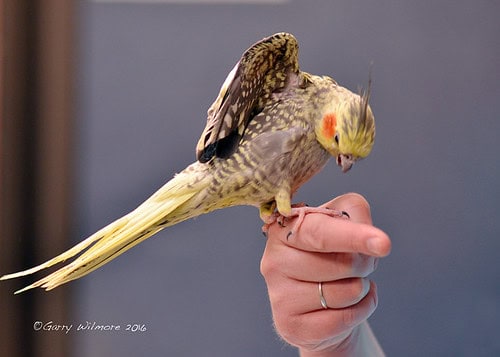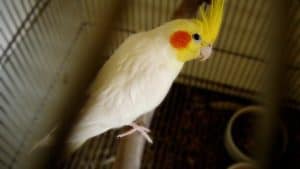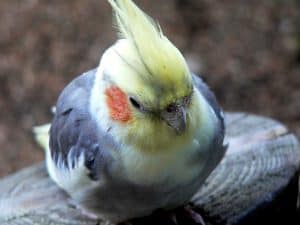Have you ever wondered, “Will my cockatiel talk?” If so, you’re not alone. Many cockatiel owners are curious about whether their feathered friends will start mimicking sounds or even speaking. These charming birds are known for their sociability and vocal abilities, making them popular pets for those looking to share their homes with a talkative companion.
Understanding your cockatiel’s potential to speak involves exploring their natural behaviors and the environment you provide for them. While not all cockatiels will speak, with the right approach and training, your bird might just surprise you with a word or two. Let’s dive into what influences a cockatiel’s ability to talk and how you can enhance their communication skills.
Understanding Cockatiel Communication
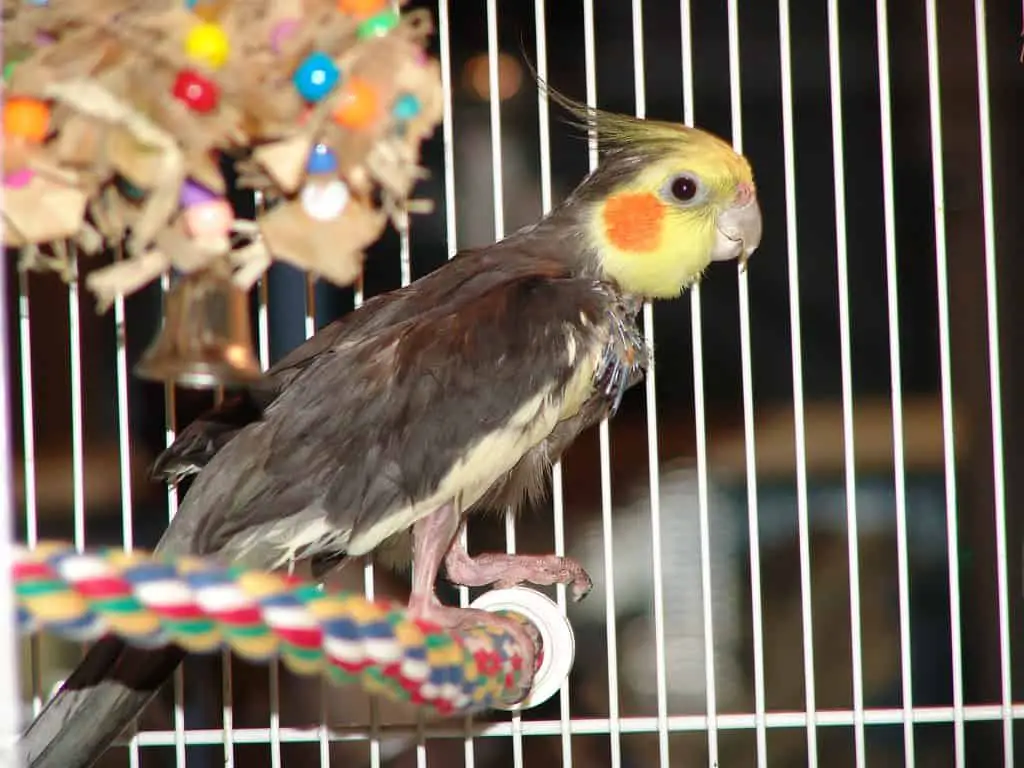
Cockatiels are not just charming birds; they’re also capable communicators. Grasping how your cockatiel communicates can enhance your interaction and strengthen your bond.
The Basics of How Cockatiels Communicate
Cockatiels, like most parrots, possess the ability to mimic sounds and, to some extent, human speech. Their vocal abilities depend significantly on individual personality, age, and the training they receive. Typically, male cockatiels are more vocal and are known to mimic phrases and tunes more readily than females.
This ability to reproduce sounds is one of the factors that make cockatiels popular as pet birds. They might not understand the words they’re repeating, but they can learn to associate sounds with actions or emotions.
Interpreting Common Cockatiel Sounds
Cockatiels produce a variety of sounds that, while they might not all be distinct words, convey a great deal about their mood and needs. A “whistle” can signify happiness or a call for attention, while a “hiss” might indicate agitation or discomfort. It’s crucial to pay attention to the context in which your cockatiel makes certain sounds to understand its communication better.
For instance, a soft “chirp” could be a sign of contentment when you enter the room or might simply be part of its daily vocal routine. Recognizing these sounds can help you cater to your feathered friend’s needs more effectively, fostering a positive environment for your pet.
Factors Influencing a Cockatiel’s Ability to Talk
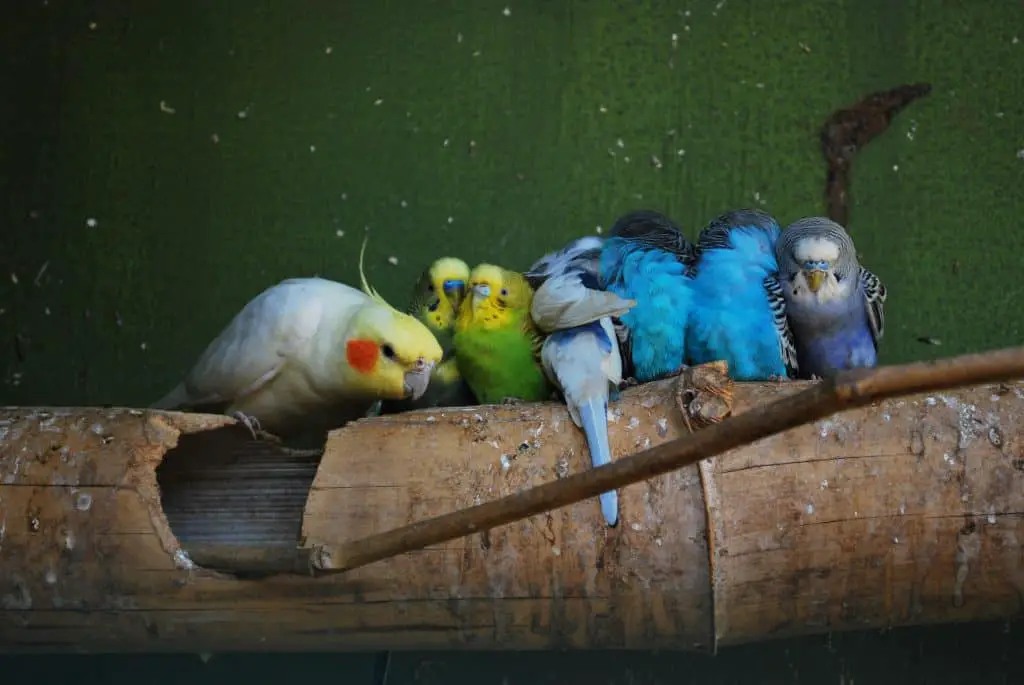
Cockatiels are known for their ability to mimic sounds and phrases, but several factors determine whether your feathered friend masters the skill of talking. Understanding these elements can enhance both your approach to training and your expectations.
Gender Differences in Talking Ability
Male cockatiels are generally more inclined towards vocalization and mimicry compared to female cockatiels. If you’re hoping your cockatiel will speak or mimic sounds, knowing that males are typically more proficient might influence your choice when adopting.
Males often use their vocal skills to attract mates, which includes copying phrases, whistles, and other parrot sounds they hear frequently. On the other hand, female cockatiels tend to be quieter and less likely to mimic human speech but can still enjoy the interaction and may learn a few words or tunes.
Impact of Environment and Socialization
The surroundings in which a cockatiel lives play a crucial role in its ability to learn and mimic words. A rich, stimulating environment with plenty of human interaction can encourage your cockatiel to start talking. Regular exposure to speech and music helps them become familiar with different sounds, which they might eventually repeat.
Socialization is equally important; the more a cockatiel interacts socially, not just with humans but also potentially with other parrots, the better its chances of developing the ability to mimic. Positive reinforcement, such as praising or offering treats when they make a desired sound, significantly boosts their learning process. Thus, a loving, engaging atmosphere combined with consistent training maximizes your cockatiel’s potential to talk.
- Size: 8.7x3.9 inch /22x10 cm
- Made of metal, it is safe and very resistant to bite.
- Entertaining enough to keep birds busy for a long period and they do enjoy playing with it.
- The bells is sweet sound, can attract the attention of the bird.
- The toy can help pet birds to ease the unhappy moods and release the pressure to keep them stimulated and healthy mentally.
Training Your Cockatiel to Talk
Training your cockatiel to talk is an engaging process that requires patience, consistency, and understanding of bird psychology. By effectively training, you foster a stronger bond with your feathered friend and might enjoy the charming aspect of them mimicking human speech.
Effective Techniques to Encourage Speech
Start by choosing simple words or phrases such as “hello,” “pretty bird,” or “good morning.” Repeat these consistently throughout the day so your cockatiel hears them frequently. Position your cage in a social area where your bird can see and hear humans engaging in daily activities, as social interaction plays a crucial role in language learning for birds.
Encourage speech by responding positively with treats or verbal praise when your cockatiel attempts to mimic sounds or utter words. This positive reinforcement helps them associate speaking with rewards. Additionally, incorporate music or other sounds into their environment. Cockatiels often try to copy tunes and rhythms, gradually adding words to their repertoire.
Finally, ensure regular practice sessions but keep them short to prevent your bird from becoming overwhelmed or frustrated. About 5-10 minutes a few times a day is ideal, contributing significantly to their learning without overstressing them.
Common Mistakes in Training
Avoid forcing your cockatiel to talk by keeping the training sessions too long or becoming impatient if progress is slow. Pushing your bird can lead to stress and reluctance to engage. Remember, not all cockatiels will talk; males are generally more predisposed to mimicry than females.
Neglecting to provide a varied and stimulating environment can impede your cockatiel’s ability to learn new sounds. As intelligent creatures, they require mental stimulation to develop their mimicking abilities. Ensure their living space is enriched with different objects and sounds.
Ignoring the importance of consistency is another common pitfall. Changing words or phrases frequently or using different tones for the same word can confuse your cockatiel. If you pick a phrase to teach, stick with it and use the same intonation each time you say it, which helps your bird understand and eventually replicate the sound.
The Challenges of Cockatiel Speech
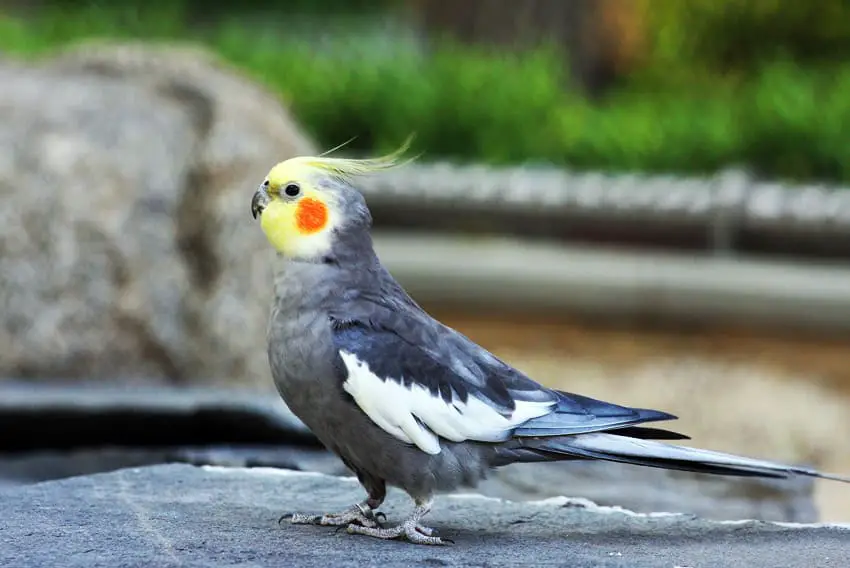
Training your cockatiel to talk involves understanding its potential and limitations, particularly when it comes to mastering human speech. While male cockatiels generally exhibit greater aptitude for mimicry, both genders can face challenges in clear and accurate speech imitation. Below, explore the factors that might restrict your cockatiel’s ability to talk and signs that indicate your pet might remain quiet.
Limitations of Vocabulary and Clarity
Cockatiels, unlike most parrots, have a limited vocabulary capacity. Your pet bird may learn simple words and phrases such as “hello” or “pretty bird,” but complex sentences are beyond their capability. Clarity is another major challenge. Even if a cockatiel learns to mimic sounds or phrases, its pronunciation might not be as clear as you’d expect. The vocal structures of cockatiels are not designed for human language, limiting their ability to enunciate the way humans do.
Additionally, the environmental context significantly impacts their ability to learn. Cockatiels require a stimulating, engaging environment to enhance their learning capabilities. Continued exposure to words, phrases, and various sounds enhances their likelihood of repeating them. However, without consistent interaction or if exposed mainly to ambient noises like a TV or radio, they might pick up unintended sounds instead.
Signs Your Cockatiel Might Not Talk
Several indications might suggest that your cockatiel won’t talk. Firstly, a lack of interest in interactive play or mimicking sounds during early stages, usually around six months to one year, can be a sign. If your cockatiel seems more fascinated by sounds like the whistle of a kettle rather than human speech, it may not develop talking skills.
Behavioral signs also provide clues. Cockatiels that are less social or shy might not engage enough to mimic speech effectively. Female cockatiels often fall into this category, as they are generally less vocal than their male counterparts. Furthermore, if your cockatiel does not respond to your attempts at conversation or mimicry with curious or attentive behavior, it’s likely they might not pick up talking. In this case, enjoying their natural sounds and chirps becomes a joyful aspect of pet ownership, celebrating their unique ways of communication.
Creating a Stimulating Environment
A stimulating environment is crucial for your cockatiel’s mental health and vocal development. Here are some tips to ensure your bird remains engaged and happy:
Varied Toys and Perches
Introduce a variety of toys and perches to keep your cockatiel entertained. Toys that make sounds or require interaction, such as bells and puzzle toys, can be particularly beneficial. Rotating toys regularly prevents boredom and keeps their environment interesting.
Social Interaction and Enrichment
Spend quality time interacting with your cockatiel daily. Talk to them, play games, and encourage socialization. Cockatiels are social creatures and thrive on interaction with their human companions. Additionally, consider placing their cage in a busy part of your home where they can observe and listen to daily activities.
Final Thoughts: Will my cockatiel talk?
While your cockatiel’s potential to talk hinges on various factors like gender and socialization, remember that each bird’s capacity to mimic speech will differ. Embrace the journey of training with patience and enjoy the unique sounds they naturally offer, whether or not they master clear speech. Your relationship with your pet can still flourish through the interactive play and bonding experiences, fostering a fulfilling connection that goes beyond words.
Other suggested articles:
